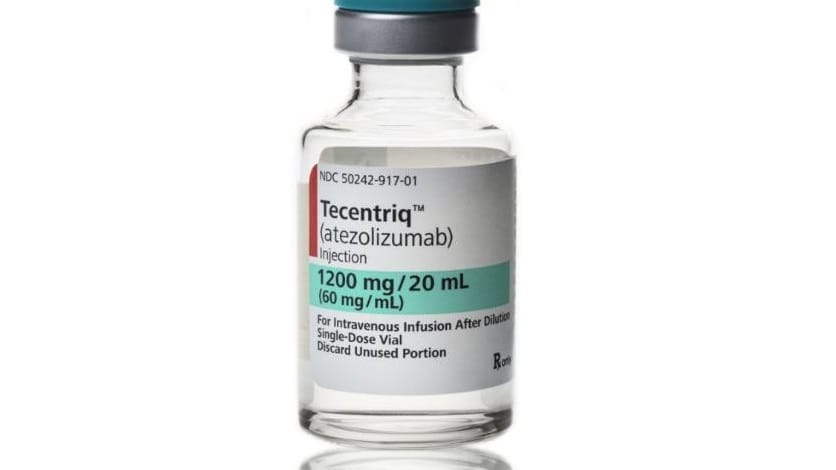
There is not enough evidence to back the use of Roche’s checkpoint inhibitor Tecentriq as a first-line treatment for small-cell lung cancer (SCLC), says the UK cost-effectiveness watchdog.
In draft guidance, the National Institute for Health and Care Excellence (NICE) says Tecentriq (atezolizumab) in combination with carboplatin and etoposide shouldn’t be made available for untreated extensive-stage SCLC in adults.
The guidance notes that clinical data show that Tecentriq plus chemotherapy “could help people to live longer without their disease progressing, and to live for longer compared with chemotherapy alone”.
The agency says however there is “uncertainty” about how much longer patients live after receiving treatment with Roche’s drug, and also that “the cost-effectiveness estimates for atezolizumab with chemotherapy are higher than what is considered a cost-effective use of NHS resources”.
It also says that Tecentriq shouldn’t be made available for SCLC via the Cancer Drugs Fund – which provides a backup route for patient access to drugs while new evidence is being generated – although NICE notes that Roche “did not express an interest in the treatment being considered for funding” via the CDF.
Tecentriq was approved by the EMA for this indication in September based on the results of the IMpower133 study, which revealed that median overall survival (OS) was 12.3 months for Tecentriq combination therapy and 10.3 months for chemotherapy alone.
The NICE guidance says that the survival curves for the two arms had almost come together at 30 months, “which could show there is little overall survival benefit for the atezolizumab arm after this”.
SCLC is less common than non-small cell lung cancer (NSCLC) but is a particularly aggressive form, growing more quickly and spreading to other parts of the body earlier.
According to NICE, the average cost of a course of treatment with Tecentriq for a patient with extensive-stage SCLC is £32,798 at list prices, and while Roche offers the drug at a confidential discount to the NHS the incremental cost-effectiveness ratio was likely to be more than the £50,000 per quality-adjusted life year gained threshold.
Roche is trying to stay ahead of potential rivals in the SCLC treatment category, including AstraZeneca’s rival PD-L1 inhibitor Imfinzi (durvalumab) which has shown it can improve overall survival in previously-untreated advanced SCLC.
Imfinzi is heading for regulatory decisions in SCLC later this year, with AZ claiming its drug offers a more durable response and that it has data on a broader range of chemotherapy combinations with its drug that will take into account differing clinical practice among oncologists.




